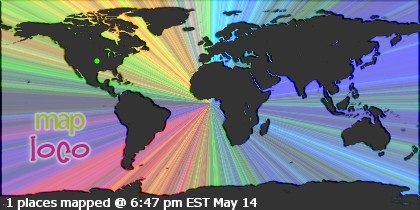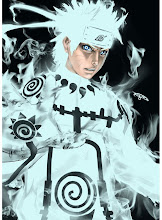3. TERMINOLOGY
- Etymology and pronunciation
The Japanese term for animation is ??????? (animēshon, pronounced /anime:soN/), written in katakana. It is a direct transliteration and re-borrowed loanword (see gairaigo) of the English term "animation." The Japanese term is abbreviated as ??? (anime, pronounced /anime/). Both the original and abbreviated forms are valid and interchangeable in Japanese, but as could be expected the abbreviated form is more commonly used.
The pronunciation of anime in English differs significantly from Japanese. The first vowel is further forward in English than Japanese: /æ/ is more likely than /a/. As English stresses words differently than Japanese, the second vowel is likely to emerge as an unstressed schwa /a/ or /I/ in English, whereas in Japanese each mora carries equal stress. As with a few other Japanese words such as Pokémon and Kobo Abé, anime is sometimes spelled as animé in English with an acute accent over the final e to cue the reader that the letter is pronounced as a Japanese /e/. However, this accent does not appear in any commonly used system of romanized Japanese, and English native speakers may produce /eI/.
- Definition
In western countries the word is used usually only to refer to animated programming of Japanese origin, with the term "cartoon" or "animated series" used for most other visual styles. The online anime database AniDB generally defines anime (in the singular form) as "an animated, professionally produced, feature film created by a Japanese company for the Japanese market".[5] However, some anime are co-productions with non-Japanese companies like the Cartoon Network. Thus, anime is no longer specific to the Japanese market.
- Syntax and morphology
Anime can be used as a common noun, "Do you watch anime?" or as a suppletive adjective, "The anime Guyver is different from the movie Guyver." It may also be used as a mass noun, as in "How much anime have you collected?" and therefore is never pluralized "animes" (nouns are never pluralized in Japanese). However, in other languages where anime has been adopted as a loan word, it is sometimes used as a count noun in singular and in plural as in Danish "Jeg tror, jeg vil se en anime" ("I think I'll watch an anime") and "Hvor mange anime'er har du nu?" ("How many animes do you have now?").
- Synonyms
Anime is sometimes referred to as Japanimation, but this term has fallen into disuse. Japanimation saw the most usage during the 1970s and 1980s, which broadly comprise the first and second waves of anime fandom, and had continued use up until before the mid-1990s anime resurgence. In general, the term now only appears in nostalgic contexts. The term is much more commonly used within Japan to refer to domestic animation. Since anime or animēshon is used to describe all forms of animation, Japanimation is used to distinguish Japanese work from that of the rest of the world.
In more recent years, anime has also frequently been referred to as manga in European countries, a practice that may stem from the Japanese usage: In Japan, manga can refer to both animation and comics (although the use of manga to refer to animation is mostly restricted to non-fans). Among English speakers, manga usually has the stricter meaning of "Japanese comics". An alternate explanation is that it is due to the prominence of Manga Entertainment, a distributor of anime to the US and UK markets. Because Manga Entertainment originated in the UK the use of the term is common outside of Japan. The portmanteau "animanga" has been used to collectively refer to anime and manga, though it is also a term used to describe comics produced from animation cels.




![[Cracked Application] YouToob 6.9 / Spk Youtube Bot](http://ajulinc.org/wp-content/uploads/2011/09/9-13-2011-12-31-51-AM2.png)





